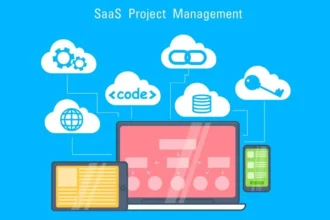Nexting is a startup incubator and venture ecosystem builder in Malaysia, supporting founders with mentorship, validation workshops, and connections to accelerators and investors. As part of Malaysia’s fast-growing startup ecosystem, incubators and accelerators play a crucial role in helping entrepreneurs launch and scale their businesses. By joining programs like Nexting and others, startups can access mentorship, funding, networking opportunities, and strategic guidance to navigate challenges and achieve success.
This guide will walk you through a step-by-step approach to joining a startup accelerator Malaysia or accelerator program, while highlighting opportunities within the fastest growing startup industries Malaysia.
Understanding Incubators and Accelerators in Malaysia
Before diving into the application process, it’s essential to understand the difference between incubators and accelerators:
- Startup Incubators: Focus on nurturing early-stage startups by providing resources, office space, mentorship, and sometimes seed funding. Incubators are ideal for founders who have an idea or prototype but need guidance to bring it to market.
- Startup Accelerators: Designed for startups that already have a validated product and are looking to scale quickly. Accelerators provide intensive mentorship, workshops, investor connections, and exposure to potential clients.
Both types of programs play a crucial role in Malaysia’s entrepreneurial ecosystem, supporting startups in the fastest growing startup industries Malaysia, such as fintech, healthtech, edtech, greentech, and AI-driven solutions.
Step 1: Research the Right Program
The first step is to identify programs that align with your startup’s stage, industry, and goals. Some of the top startup incubators and accelerators in Malaysia include:
- MaGIC (Malaysian Global Innovation & Creativity Centre): Offers incubation and accelerator programs with mentorship, funding, and networking opportunities.
- Cradle Fund: Provides grants, mentorship, and funding for early-stage startups.
- NEXEA Accelerator: Focuses on growth-stage startups, connecting them with mentors, investors, and business networks.
- 1337 Ventures: Supports tech-focused startups with mentorship, workshops, and investor access.
When researching programs, consider factors such as program duration, funding opportunities, mentor expertise, and the sectors they specialize in.
Step 2: Evaluate Your Readiness
Accelerators and incubators often have specific eligibility criteria. Before applying, evaluate whether your startup meets these requirements:
- Stage of Development: Early-stage startups typically join incubators, while growth-stage startups are better suited for accelerators.
- Product Validation: Ensure you have a minimum viable product (MVP) or prototype.
- Team Composition: Programs prefer startups with a dedicated, skilled, and committed founding team.
- Market Potential: Highlight how your startup aligns with high-demand sectors, particularly the fastest growing startup industries Malaysia.
Preparing this information in advance will strengthen your application and increase your chances of acceptance.
Step 3: Prepare a Strong Application
A strong application is crucial for standing out in competitive programs. Key elements include:
- Pitch Deck: Clearly outline your problem, solution, market opportunity, business model, traction, and financial projections.
- Business Plan: Include a detailed plan with short-term and long-term goals.
- Team Overview: Highlight the skills and experience of your founding team.
- Market Research: Demonstrate knowledge of your target market and industry trends.
Many incubators and accelerators provide guidelines and application templates to help startups craft a compelling submission.
Step 4: Leverage Mentorship and Networking
Even before acceptance, connecting with mentors and industry experts can improve your chances of joining a program. Startup accelerator Malaysia programs emphasize mentorship as a critical component of growth. Steps to leverage mentorship include:
- Attend Startup Events: Conferences, workshops, and networking events are ideal for meeting mentors and program alumni.
- Seek Guidance Early: Reach out to experienced entrepreneurs for advice on refining your pitch and business strategy.
- Build Relationships: Demonstrate commitment and a willingness to learn from industry leaders.
Mentorship not only strengthens your application but also provides insights that are invaluable during the accelerator or incubator program.
Step 5: Participate in Interviews and Pitch Sessions
Once your application is shortlisted, most programs conduct interviews and pitch sessions. To succeed:
- Practice Your Pitch: Be concise, clear, and confident. Emphasize your value proposition and market potential.
- Show Traction: Highlight user growth, revenue, partnerships, or product milestones.
- Demonstrate Scalability: Explain how your startup can expand, particularly in high-growth sectors like fintech, healthtech, or AI solutions.
Strong interview performance often determines your acceptance into competitive programs.
Step 6: Maximize Your Accelerator or Incubator Experience
After being accepted, make the most of your time in the program by actively engaging with mentors, attending workshops, and utilizing available resources. Key strategies include:
- Implement Mentor Feedback: Apply advice from mentors to refine your business model and operations.
- Network Aggressively: Connect with investors, industry leaders, and peers to build valuable relationships.
- Focus on Growth Metrics: Track KPIs, customer acquisition, and revenue growth to measure progress.
- Prepare for Fundraising: Use the program’s investor connections to secure seed funding or venture capital.
By fully leveraging the program, startups can accelerate growth and achieve long-term success.
Step 7: Graduation and Scaling
Upon completing the program, focus on scaling your business strategically:
- Expand Market Reach: Explore regional or international expansion opportunities.
- Optimize Operations: Streamline processes and build efficient systems for growth.
- Continue Mentorship: Maintain relationships with mentors for ongoing advice and guidance.
- Seek Additional Funding: Use traction gained during the program to attract further investment.
Graduating from an accelerator or incubator is just the beginning; ongoing effort and strategic execution are essential for sustained success.
Conclusion
Joining a startup accelerator Malaysia or incubator program can be a transformative step for entrepreneurs looking to scale their startups in 2025. By following this step-by-step guide—researching programs, evaluating readiness, preparing a strong application, leveraging mentorship, excelling in interviews, maximizing program resources, and focusing on scaling—founders can position their startups for success.
By aligning with high-demand sectors in the fastest growing startup industries Malaysia, and strategically engaging with mentors and investors, startups can accelerate growth, secure funding, and make a lasting impact in Malaysia’s vibrant startup ecosystem.
For entrepreneurs ready to innovate and scale, joining an incubator or accelerator is not just a pathway—it’s a launchpad for building the next generation of successful Malaysian startups.

















